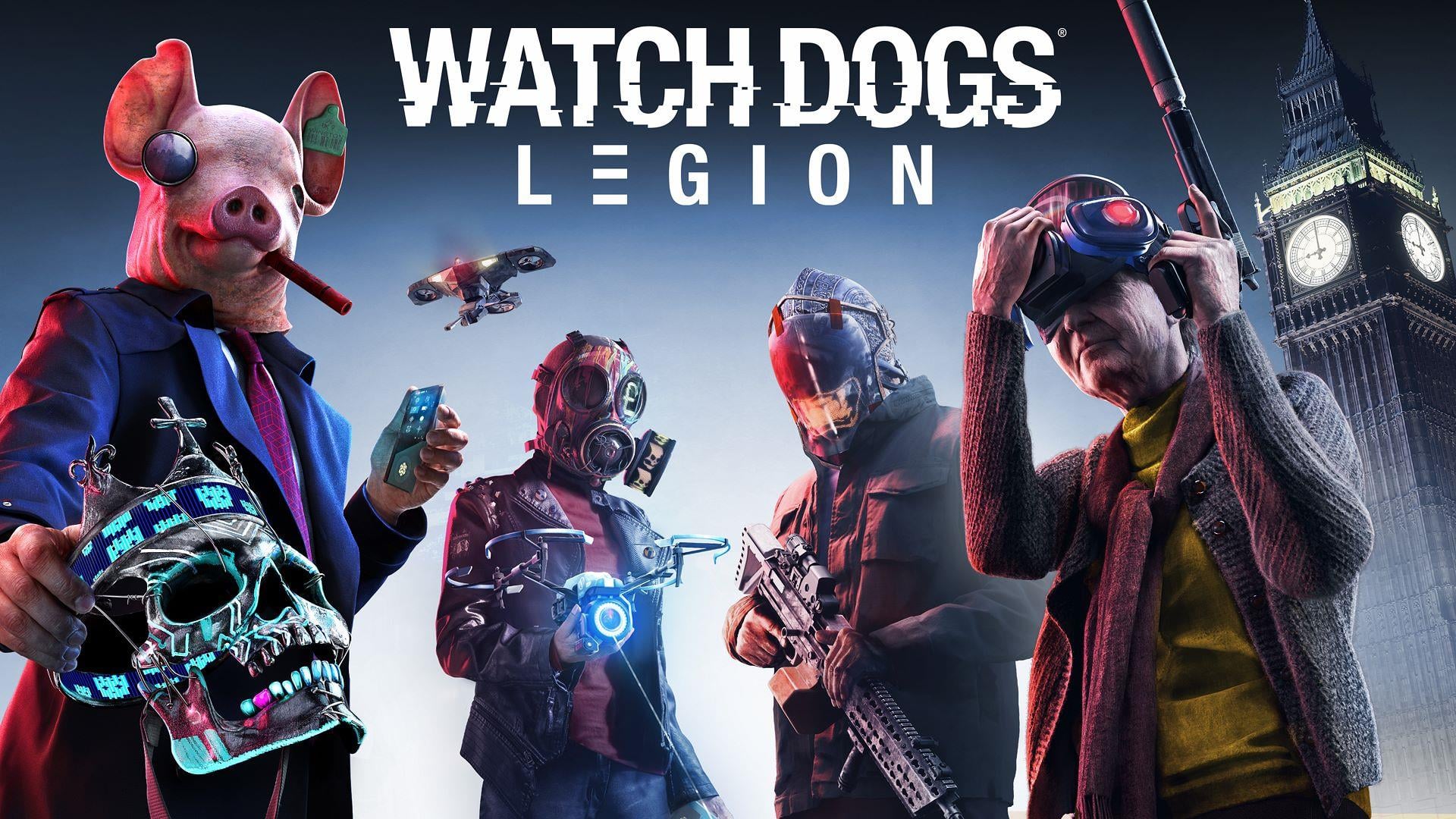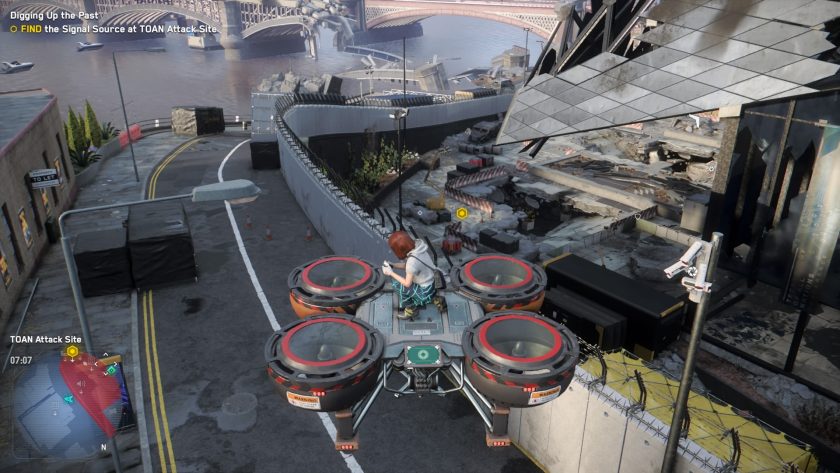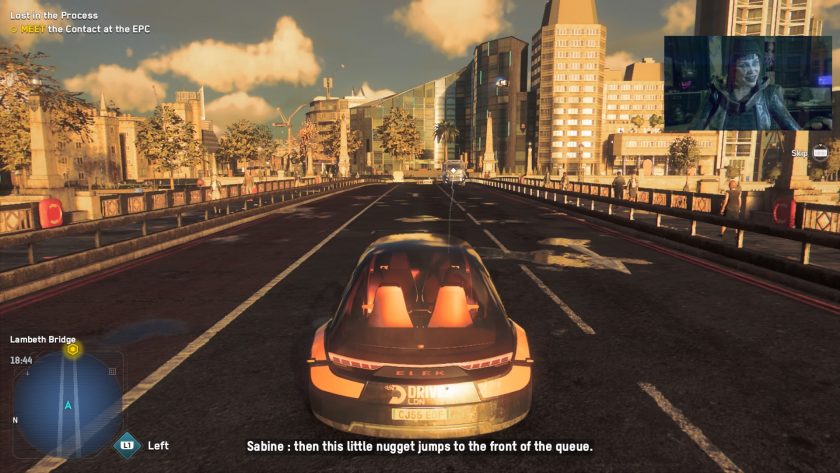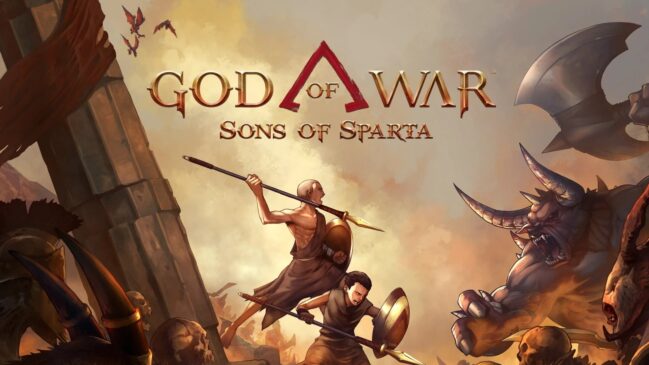
Watch Dogs was an interesting release, to say the least. The open-world genre has been saturated for a while now, and most additions rarely manage to differentiate from the others. Watch Dogs brought in an interesting gimmick – hacking, allowing you to hack into various in-game gadgets and putting the various systems against each other. Watch Dogs 2 came out in 2016 and introduced various incremental additions to the game as well as a less somber story.
AT A GLANCE
RELEASE DATE: 29 October 2020
DEVELOPER: Ubisoft Toronto
PUBLISHER: Ubisoft
GENRE: Action, Adventure, Open-World
PLATFORMS: PlayStation 5, Xbox Series X and Series S, PlayStation 4(Reviewed), Xbox One, Google Stadia, PC
FINAL SCORE: 9/10
Now, Watch Dogs: Legion has arrived, and while it does share the core gameplay of its predecessors, it’s got one very interesting mechanic – you can literally play as anyone. Developed by Ubisoft Toronto and published by Ubisoft. It is the third installment in the Watch Dogs series, and the sequel to Watch Dogs 2.
Story
Set in the city of London, the game starts off with you playing as Dalton – an MI5 agent who happens to also be a part of the London sect of DedSec. After you fail to prevent a fatal terrorist bombing, and DedSec is blamed for the attacks, London is thrust into a dystopian and oppressive surveillance state. Controlled by the corrupt private military organization Albion, the citizens of London are constantly terrorized by the system that was supposed to protect them.
That is where your initial recruit steps in. After choosing a suitable candidate from a list of randomly generated APC(All Playable Characters as Ubisoft puts it), you go about recruiting new recruits to the team, liberating the populace, and taking down the actual culprits.
Initially one of my worries was that without a particular protagonist it would be hard to develop a connection to the story. But I am happy to report, aside from some occasional awkward dialogue from my characters and some sudden changes in tone, the recruitment system actually meshes well with the story.

If anything, the side stories were ridiculously varied and better than some pre-crafted side missions that I have come across in other games. I never knew what to expect from a recruitment mission, and I rarely ran into duplicate missions. One time I was recruiting a medical specialist that had perks I wanted, but it turned out she was a dirty hacker who was hacking into the National Health Repository, further investigation however revealed that she was actually investigating clan Kelly’s involvement in the organ donor list. For a game that randomly generates background stories for its characters, this was a surprisingly in-depth mission.
I loved roaming around, randomly profiling everyone, trying to piece together what was going on in their lives. Occasionally, I would decide to investigate further and start off their recruitment chain, going down a rabbit hole. This recruitment system does suffer from two issues in my opinion, the first being why does EVERYONE has a hugely complicated issue that they wanted to be solved? literally, almost everyone I recruited was either a vigilante or owed money to the mob or living some double life. I would have really appreciated some subtle and straightforward recruitments. The second issue I have is with the sudden changes in character development. Because the game allows you to recruit anyone, you are able to also recruit Albion contractors and other shady characters. While I understand a change of heart is possible, but going from beating the crap out of citizens in the morning to the guy everyone likes to talk to at parties in the evening is kind of an extreme change of character. A longer chain of missions or some other radical life-altering mission would have justified this a bit better.
The main story itself is reasonably well-paced, but its enjoyment entirely depends on how much engrossed you become with the recruitment missions. The story deals with realistic themes, including immigration, drugs, breach of privacy, and human trafficking. I found the main missions a bit tame after some of the ridiculous side missions that I ran into, but your mileage may vary. The characters are all well developed, and there’s a couple of predictable twists in there. I especially loved Bagley, the AI that helps you out. His humorous British one-liners and quips kept me entertained through some of the more mundane offerings in the game.
Gameplay
Watch Dogs: Legion is similar to its predecessors in terms of the overall gameplay structure. You are still able to hack various things in-game and utilize them to your advantage. Some options have been removed, while other abilities are now locked to specific recruitable characters, but there’s been a whole load of new toys added to expand the possibilities.

But the main attraction in the game is its recruitment system, which allows you to recruit anyone you see on the streets of London to your cause. Initially, you will be able to only recruit the people who are sympathetic to DedSec’s cause, but after unlocking the deep profiler upgrade, you will be able to recruit characters from rival factions. A lot of the characters also have virtual relationships with other in-game characters, and your actions might affect their disposition DedSec. If you steal the car from someone’s nephew, they might hate you for it, but rescue someone’s husband from Albion and they will be more willing to join your cause.
Each character in-game has a set of unique perks and abilities that might make them suitable for one task than your other operatives. For example, a character recruited from Albion will have the ability to disguise themselves and gain entry into restricted areas without needing to break in. A construction worker will be able to summon his drone and ride it to access previously inaccessible areas. An operative who takes less damage AND deals more damage when drunk might be a great choice for the underground fighting rings, while a spy with access to fancy weapons and gadgets will be able to tackle the more violent encounters easily.

Aside from your operatives’ own abilities, you will also be able to unlock a diverse set of skills and gadgets. From an AR cloak that renders you invisible to turret hacks and a nifty spider bot(that I recommend everyone unlocks, regardless of their playstyle). This huge selection of tools means that you are able to tackle every mission in the game from various playstyles. You can stealth in by disguising yourself as a member of that faction or just sneak in using the AR cloak. Or you can choose one of your operatives with access to weapons and armor, and just go in guns blazing. The choice is up to you, except in some missions that might force you to approach it from one way only.
The difficulty in missions can be a bit underwhelming in normal, especially if you like a challenge. Recruiting a civilian and then suddenly being able to take down an entire armed battalion of soldiers without breaking a sweat might put off some players who prefer a harder game. The hard difficulty combined with permadeath turns Legion into a different game altogether, and while it may force you to play a bit carefully lest you lose your favorite operative, the tension that is added to the missions, as a result, is great for some adrenaline-filled playthroughs.
Your operatives can get injured and hospitalized, arrested, or straight up die on permadeath mode. Recruiting certain characters like a doctor or a lawyer will reduce these effects, so it’s important to mix and match your roster, even if you don’t plan on actually playing as them.
The city of London is littered with collectibles and things to do, as it is custom for any Ubisoft game. There are tech points, fighting rings, delivery missions, dart games, pubs to drink in, and shops to blow your ETO on. You can customize your operatives in a wide variety of clothing, and ETO can subsequently be earned by doing the various activities and missions. Some operatives will also be able to hack ETO from other characters.

London is filled with cars and other modes of transport, and vehicle handling feels great. It’s of course on the arcadey side so don’t expect realistic controls, but I had fun tearing through the streets of London in my futuristic sports car.
Missions are divided between the main missions and the recruitment missions. Main missions are predefined stories that set you on uncovering the conspiracy behind the London terror attacks, while the recruitment missions can vary from a simple drug debt removal to a wild shootout with the notorious gangs of London. You can also take part in liberating the boroughs of London which will fuel the resistance and also give you a free specialist.
I honestly did not expect to be attached with a bunch of randomly generated characters, but because I had been so involved in their recruitment and chosen them to be a part of my ragtag team of hackers, I actually found myself caring for them even more. I would panic when their health would drop, not just because of their abilities, because that could still be replaced, but because I had grown attached to that particular operative. The system isn’t flawless by any means, but it’s a unique experience that no other game offers.
Visuals, Audio and Technical Performance
The Watch Dogs series has always been pushing visual boundaries, even the first game, despite its downgrades was a beautiful game. Watch Dogs: Legion isn’t just gorgeous, it’s downright breathtaking. From the neon lit shops in the city of London to the breathtaking view of Big Ben to the richly detailed streets, Legion is a gorgeous game.
The characters still need a bit of work to get rid of that zombie look that prevalent in the randomly generated characters but overall the character design was great. Especially considering how ambitious the entire premise is, I’m pleasantly surprised at how varied and diverse the characters ended up being. Characters from diverse ethnicities and backgrounds were generated by the game, and brought the game’s world to life.
Driving through the rain-soaked streets, with the light reflecting off the puddles was an immersive experience that I had experienced in very few games. Seeing drones scurrying about in the sky, tailing the occasional person and auto-driving cars made me both frightened and excited for a future that could quite easily be ours.
In terms of audio, Legion is equally ambitious. Giving literally hundreds of random characters an unique voice is not an easy job, and Ubisoft manages to do it by applying voice modulation on a wide variety of authentic londoner accents. The result is mostly positive, although I did run into the occasional awkwardly voiced character.
The in game radio is filled with a wide selection of tracks, from classical music to London’s bustling hip hop scene. One mission even features London’s own Stormzy in a live broadcast, and it’s a testament to the game’s technical prowess.
On the performance side, the game was played on a base PS4 and it performed as well as I expected a game this rich in visuals and technically complex to perform. It was never unplayable, but I did face some pretty severe dips. Ubisoft might fix this up in a future patch, but regardless, it’s still playable and I’m not going to let this hamper my score for the game. It’s very clear that the game is intended for next-gen, and current-gen consoles are going to have a hard time playing catch up. As such I will not be scoring the game based on the performance, but I will keep this in just in case someone decides to get this game on the base consoles.




